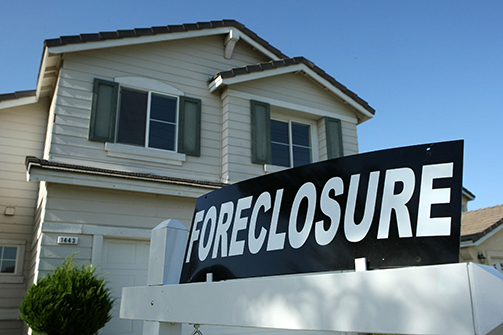This article will give you the cold hard facts on buying foreclosures. You will be able to avoid some of the pitfalls and take a realistic approach to this type of investing.
Periodically, companies advertise real estate foreclosure auctions that result from various liens (real estate taxes, IRS audits, and criminal attachments, for example). Let me tell you about my experiences with one of these foreclosure auctions.
It all began when I called a telephone number in an advertisement, and requested a list of the properties to be auctioned. The agency handling the sale recommended that I inspect the properties before attending. There were at least 500 properties listed. I only found 10 that even came close to meeting my standards for investment-grade rentals.
For six weeks before the auction, I attempted to inspect the properties I had selected. This proved very difficult. Most of the time I had to return a second or a third time to look inside the building. I was unable to inspect all 10 units.
In attempting to complete my homework, I was able to obtain comparable sales information on most of the buildings. No money was spent to secure independent appraisals. With my real estate background, I felt capable of determining market values. I did incur some costs by having a contractor inspect a few buildings, however.
Determining the cost of repairs necessary to collect market rents would be important in deciding how much to bid at the auction.
When trying to secure loans, I found many lenders were not interested in foreclosures. Those that were interested wanted huge down payments, some as high as 50 percent. Because obtaining the loan was becoming a problem, I turned to the agency conducting the auction; perhaps they would assist in the financing.
I reviewed all the paperwork several times to make sure I had not forgotten anything, and the day before the auction, I was confident everything was in order. I had spent much time and some money to make sure my figures were correct. I was ready for the big day
The auction was held at a convention center in a huge building. I arrived at 7:30 in the morning, hoping to gain the early bird advantage. There were a lot of people ahead of me. I had to pay a fee just to enter, and then I was handed a 50-page brochure describing all the properties.
While making note of auction times in my brochure, an auctioneer handed me a piece of paper. Its contents nearly bowled me over. The heading read “PROPERTIES TO BE DELETED FROM AUCTION.”
Approximately 400 were deleted, leaving only about 100. I began to check the properties on my list against the ones that were deleted. After several anxious moments, I was able to find two properties that weren’t on the deletion list. I didn’t know whether to laugh or cry.
I spent the rest of the afternoon attending both auctions, but I didn’t get either property. They were sold for prices far beyond what I had calculated as being reasonable. There were too many people bidding, and crowd emotion rather than reasoning prevailed.
What They Don’t Tell You about Foreclosures
What happened? Why were so many properties deleted from the list? I later discovered many owners either reinstated their loans or initiated legal proceedings to stop the sale. In checking further, it became apparent that in most auctions, the better properties end up this way – they never get to the sale. The properties that finally do get auctioned have justifiable reasons for ending up on the auction block. Most either have significant physical problems, or they don’t make sense economically.
Someone tried to convince me that if bought from the owner before the sale, both of us would benefit. After talking with professionals in the field, I discovered that pre-foreclosure properties could have undisclosed contingent liabilities Not only would I be buying the property, it was possible I could also be buying someone else’s problems. I could end up losing the property to creditors or spend time in court fighting countless legal battles. In addition, many states have consumer protection laws dealing with foreclosures. Failure to comply with these laws will get you into a great deal of trouble. It became apparent that this gigantic illusion was not for me.
Eugene E. Vollucci, is considered to be one of the foremost authorities on real estate taxation and apartment investing and has authored four books in these fields. He is the Director of the Center for Real Estate Studies, a real estate research organization.
To learn more about the Center for Real Estate Studies, visit www.calstatecompanies.com





